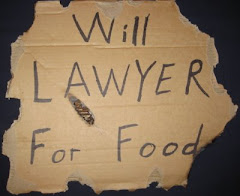I came across this story: "Ichard found not guilty through insanity," (Homan, 12-16-08). A quick link to Judici, the Illinois courts public records website, provides a glimpse into Mr. James L. Ichard's life: 5 criminal felony charges for burglary in 2003 (2003CF320-325), and one for murder in 2007 (2007CF369).
My interest was caught by one of the public comments posted by 4truth, which stated
Sad, this is what we get in our court systems today. This "insane" person will be relaeased in the next year or so because they say he is fine. Then he will strike again. By the way what happened to Garnati's perfect record on murder trials?
My B.A. is in psychology, so insanity has always been an interest of mine; I wrote several papers on it during my undergrad years. The ignorance regarding the topic is, in a word, astounding.
As a quick review, murder (or any crime, for that matter) requires two things: 1.) the mens rea, the mental state, and 2.) the actus rea, the act. Well, not exactly - some crimes are strict liability, and require no mental state (example: statutory rape), but it usually means that the mental state necessary is none, rather than there being no required mental state.
Anyway, insanity negates the mental state - if one is insane, one cannot have the necessary mental state to commit a crime, and especially murder, which has heightened mental state requirements, which very upon the degree of murder charged. Illinois follows the American Law Institue insanity standard, that is, substantial impairment of the ability to appreciate the wrongfulness of the act or to conform to the law. The burden is on the defendant to make the showing.
In practice, insanity is a hard sell, since jurys are naturally skeptical. The John Hinckley case is a prime example of the common idea of insanity, or the movie Primal Fear. In reality, insanity usually means the same or more time incarcerated and is probably never a get-out-of-jail-free-card. In regular prison, 1 in 3 state and 1 in 4 federal prisoners received mental health treatment after admission.
The idea that the public as a whole (or at least some ignorant [as in lacking knowledge] internet poster) is uninformed on a legal matter is nothing new, and neither is suspicion and doubt over mental illness. What bothers me is that anti-depresseants are among the most prescribed drugs in the U.S. (Zoloft is #12 among all prescription drugs), and yet there is still such a stigma surrounding them and mental illness in general. It disturbs me that something so common can be so quickly misunderstood.
.jpg)



No comments:
Post a Comment